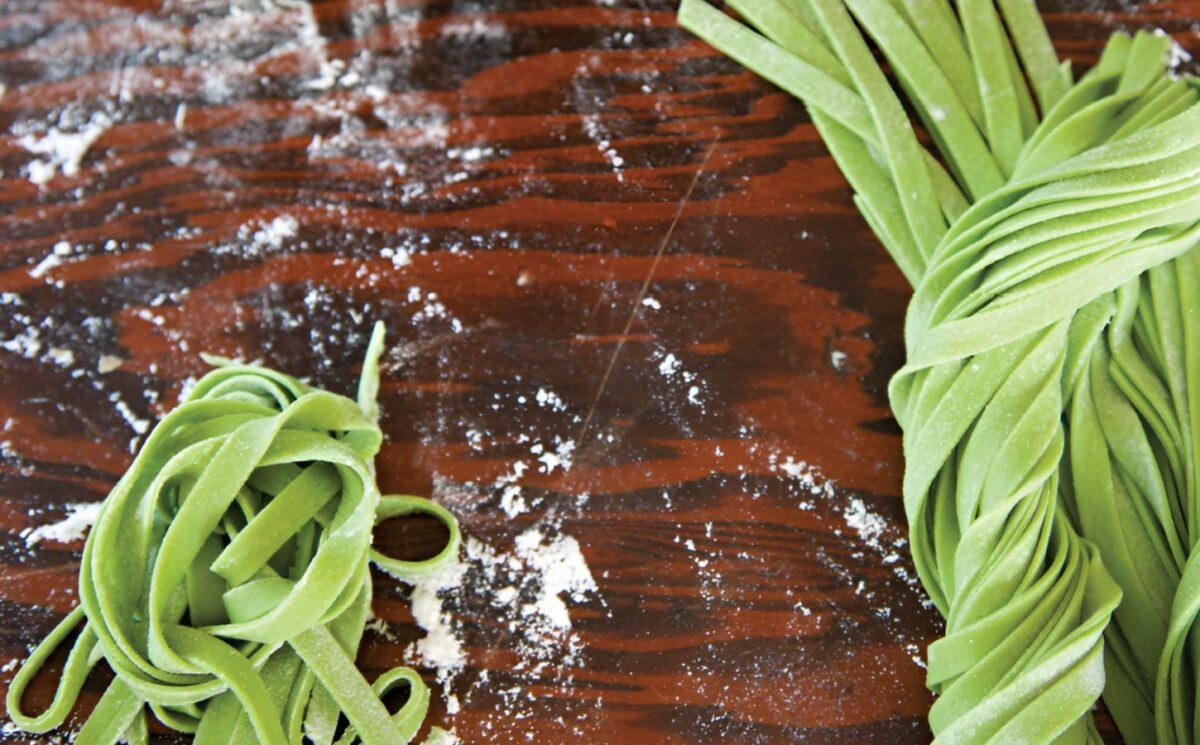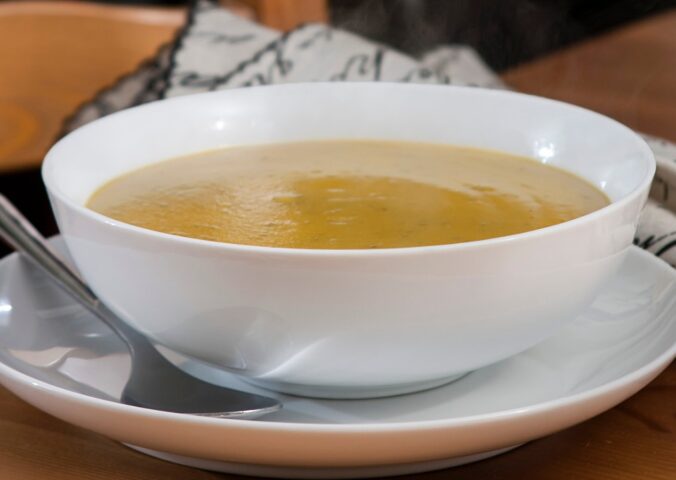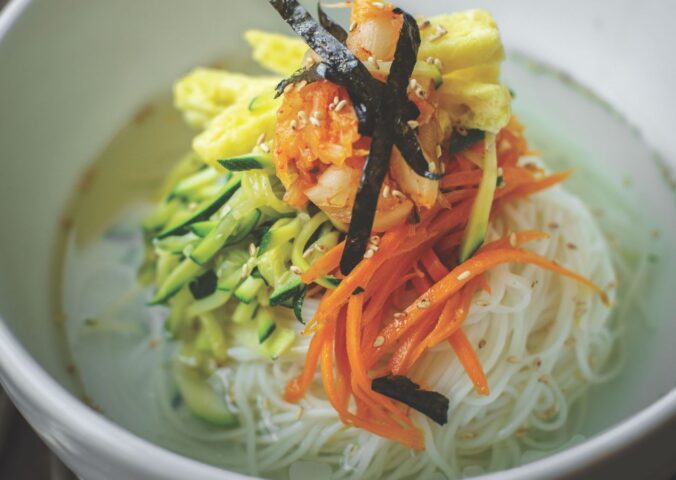Makini Howell’s fresh spinach pasta from Makini’s Vegan Kitchen is a great option for anyone looking to enjoy homemade, plant-based pasta. What makes this recipe unique is the use of homemade green egg foam, made from wilted spinach, which gives the pasta its beautiful green color without altering the flavor. This green egg foam adds a fun twist to the dough, making it more vibrant and visually appealing, especially for dishes like ravioli, fettuccini, or even simple pasta dishes.
Spinach, a key ingredient in this recipe, brings a host of health benefits. It’s rich in vitamins A, C, and K, as well as iron, which makes this pasta both nutritious and delicious. The green egg foam’s texture helps bind the dough together, mimicking the role of egg whites in traditional pasta recipes.
This spinach pasta is perfect for any Italian-inspired vegan dish. Serve it with a simple tomato sauce, pesto, or a creamy cashew-based sauce for a comforting meal. It’s also great for special occasions or when you want to impress guests with homemade vegan pasta that’s as tasty as it is beautiful.
Read more: Spiced Roasted Squash With Pomegranate Molasses & Pistachios
Fresh spinach pasta

Ingredients
For the spinach pasta
- 2 cups “00” flour plus more for flouring work surface
- ½ cup green egg foam recipe below
- 1 tablespoon olive oil
- Pinch of sea salt
- 2 teaspoons water
For the green egg foam water
- 4 cups spinach leaves packed
- ½ cup room temperature water
Instructions
Prepare your work surface by sprinkling it with flour.
- Put the flour, green egg foam, oil, and salt in the bowl of a food processor. With the machine running, drizzle in the water. The mixture will first look flaky and then start to come together into a dough. Stop the processor after about 1 minute, when the dough is slightly crumbly but
- holds together when you press it between your fingers.
- Set the dough on the floured work surface and knead it for a few minutes, forming a smooth round ball. (It should be tacky to the touch. If it crosses the line into stickiness, add more flour, 1 tablespoon at a time.
- Conversely, if it’s dry and won’t hold together, add water 1 tablespoon at a time.) Wrap the dough ball in plastic wrap and let it rest in the refrigerator for about 1 hour. (If you’re rolling the pasta by hand, let it rest on the counter instead of in the fridge; it’ll be easier to handle.)
- Cut the dough in half and flatten each half with a rolling pin. Using a pasta machine or a stand mixer’s pasta attachment, roll it through a few times on the thickest setting. If the dough is sticking, add a bit more flour. When it holds together in a well-shaped rectangle and is flattened to about ¼ inch, turn up the settings according to your machine’s directions for ravioli and fettuccini (I use setting #4 on my KitchenAid attachment) and continue rolling it through to the thickness you want.
- Repeat with the other half of the dough. If you’re rolling the dough by hand, put the chunk of dough between 2 pieces of wax paper and roll it with a pin until it’s as thin as possible without breaking—less than 1/16 inch thick.
For the green egg foam water
- Heat a large pot of water to boiling. Boil the spinach leaves until they have wilted, about 15 to 30 seconds. Drain the leaves but do not squeeze out the excess water. You should have about ½ cup of wilted spinach.
- Add the spinach and water to a blender and blend until smooth. Pour the mixture into a measuring cup and add enough room-temperature water to make 1 cup of liquid.
Reprinted with permission from Makini’s Vegan Kitchen by Makini Howell. Sasquatch Books. 2023.





